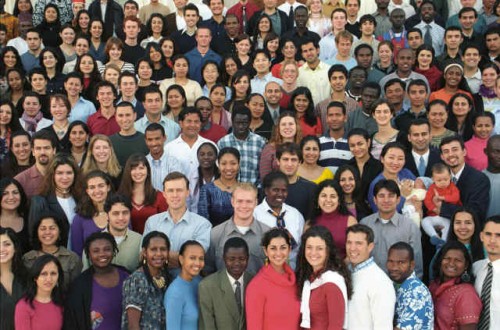I paused before answering. Community was such an obvious term to me, but I had never really taken any time to think about it. Born into the Los Angeles Baha’i community, I lived there until my parents decided to homefront pioneer into a small unincorporated area north of Los Angeles, where they were able to form the Local Spiritual Assembly, a nine-member consultative council democratically elected, without nomination or electioneering. The local Baha’i community’s collective life is administered by the Local Spiritual Assembly and Local Spiritual Assembly’s jurisdiction is typically defined by the municipal boundaries established by the governing district for that locality. After graduating high school, I was a part of many other communities, ranging from international cities in Germany, Costa Rica, and England to cities within the United States such as Washington, DC, New Haven, and Atlanta. Currently, I have moved back to California, living in the Southwest Los Angeles County community, another unincorporated area composing parts of Calabasas, Agoura Hills, Malibu and Topanga. Although all in various parts of the world, one thing that has connected these diverse communities was the sense of camaraderie I could immediately feel with the individuals and community members. Perhaps, most importantly, because local Baha’i communities meet every 19 days for a Feast, a gathering that includes consultation on community activities as well as devotional and social portions, as soon as I was able to attend my first Feast in the new areas, I immediately connected into the community life and easily assimilated into the structure. Welcomed with open arms into each of the communities, I was seamlessly invited to their events, their homes, and even into their hearts.
That is exactly what makes the Baha’i Faith so special to me – the local community. Even if the term itself might have different connotations, it symbolizes the basic premise of the Baha’i Faith as a worldwide, unified international community. Filled with thousands of local communities throughout all regions of the world, each one is essentially similar in nature and working towards the same goals of unity, development and neighborhood-building.
Of course, all types of people are involved with their own versions of a “community,” be it educational, cultural, political, service-oriented, or professional. In my experience, all these like-minded organizations and communities can only add to the human condition, however they should not substitute for humanity’s ultimate desire of having a sense of purpose, of belonging, and of core values. It is precisely because of my Baha’i community that I am able to succeed and strive towards my own personal development and spiritual growth. I know that I have an integrated support system, no matter when I am living. There are no membership fees, no association costs, or even a necessary form of belief. Just by being born into this world we are all part of our own local Baha’i community in the area in which we are living.
And, so when that young college student wondered what I meant after asking what community she lived in, I simply smiled and rephrased my question, inquiring, “Where do you live?”
Thank you Tala. I hope you continue writing such inspiring articles. Mahyad